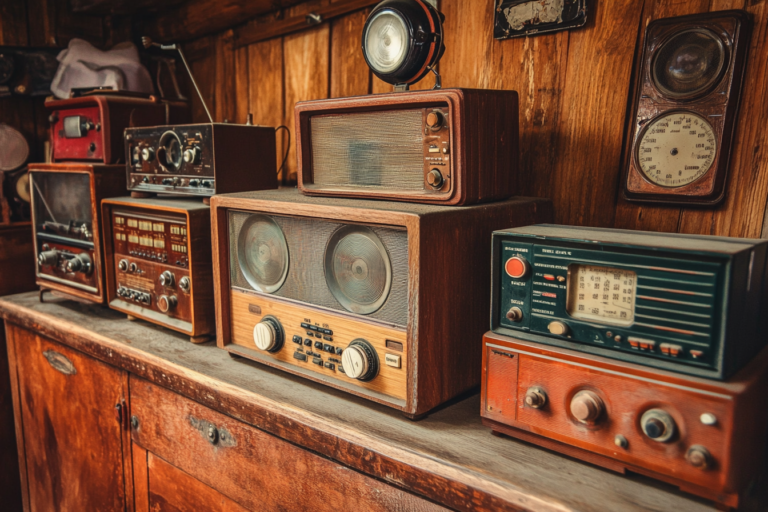Why Young People Should Get Into Ham Radio in the Digital Age

Introduction In a world dominated by social media, instant messaging, and online entertainment, ham radio might seem like a relic of the past. However, for those who take the time to explore it, amateur radio offers an exciting, hands-on, and deeply rewarding experience. Whether you’re a curious teenager, a STEM enthusiast, or someone looking for a lifelong hobby, ham radio provides a unique blend of technology, communication, and adventure that no app or social platform can match.

In this article, we’ll explore why young people should take up amateur radio, how it compares to social media, and the lifelong benefits it offers.
1. A Deeper and More Rewarding Form of Communication Unlike social media, where interactions are often fleeting and superficial, ham radio encourages meaningful conversations with people across the globe. When you operate a ham radio, you connect with like-minded individuals who share your passion for technology, science, and experimentation. Conversations on the airwaves often revolve around technical discussions, space weather, emergency preparedness, and cultural exchange, making it a far more enriching experience than scrolling through social feeds.
2. A Gateway to STEM (Science, Technology, Engineering, and Math) For young people interested in STEM fields, ham radio provides a practical, hands-on way to explore electronics, physics, and engineering. When you become a ham radio operator, you learn about:
- Electronics: How radios, circuits, and transmitters work.
- Antenna Design: The principles of radio wave propagation and how different antenna types affect signal strength and direction.
- Propagation and Solar Activity: Understanding how the Sun affects radio signals and how atmospheric conditions impact communications.
- Digital Modes and Software: How modern ham radio incorporates computer-based digital communications, software-defined radio (SDR), and even satellite communication.
These skills are not just useful for a hobby—they can lead to careers in telecommunications, engineering, and aerospace industries.
3. Independence from the Internet and Mobile Networks One of the biggest advantages of ham radio is its ability to function completely independently of the internet and commercial networks. In a world where we rely on Wi-Fi and cellular service, amateur radio offers a true alternative. Whether you’re camping in a remote area, experiencing a power outage, or in an emergency situation, ham radio allows you to communicate when other systems fail. This self-reliance is not just practical—it’s empowering.
4. The Thrill of the Chase: DXing, Contesting, and Satellites For those who love a challenge, ham radio offers exciting activities such as:
- DXing: The thrill of making long-distance contacts with stations across the world, often using low power and simple antennas.
- Contesting: Competing with other operators to make the most contacts in a given time period, testing your skills and endurance.
- Working Satellites: Communicating through orbiting satellites and even making contact with astronauts aboard the International Space Station (ISS)!
- Building and Experimentation: Designing and constructing your own antennas, radios, or digital systems for improved performance.
These aspects make amateur radio as engaging and competitive as any online game—but with real-world knowledge and skills gained along the way.
5. A Community Unlike Any Other The ham radio community is one of the most welcoming and supportive groups you’ll ever find. Young operators (often called “Young Hams” or “Young Operators”) can find mentors, participate in clubs, and join global organizations such as the Young Amateurs Radio Club (YARC). Unlike the often-toxic environments found on social media, the ham radio community fosters mutual respect, learning, and teamwork.
6. Opportunities for Public Service and Emergency Communication Ham radio is not just about fun—it’s also about giving back. Many ham radio operators take part in emergency communications, providing critical support during natural disasters, hurricanes, earthquakes, and even local public events. Learning to be a licensed operator means you can contribute in times of crisis, making a real difference when traditional communication systems fail.
7. Lifelong Learning and Career Advantages For young people considering careers in aviation, telecommunications, cybersecurity, or space exploration, ham radio provides a foundational understanding of radio frequencies, signal processing, and network communication. Many astronauts, engineers, and scientists started their journey with amateur radio, including NASA astronauts and prominent electrical engineers.
Conclusion: A Hobby That Stands the Test of Time In a world where digital trends change overnight, ham radio remains a timeless and rewarding pursuit. It offers young people a chance to develop technical skills, engage in meaningful global communication, and participate in real-world science and engineering experiments. Unlike social media, which often leads to passive consumption, ham radio encourages active learning, problem-solving, and hands-on experimentation.
For those seeking adventure, knowledge, and a supportive global community, there’s never been a better time to become a ham radio operator. Whether you’re looking to build your own antenna, talk to someone on the other side of the world, or even make contact with the ISS, ham radio opens the door to a lifetime of discovery.


